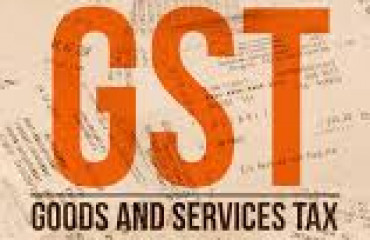
NEW DELHI : Easing global commodity prices bodes well for the economy and will reflect positively on the current account deficit (CAD) even as the central government keeps a close watch on trends in inflation, especially from the perspective of protecting the interests of the poor and the middle class, a top government official said on Thursday. A promising monsoon means half the battle is won, the person said.
NEW DELHI : Easing global commodity prices bodes well for the economy and will reflect positively on the current account deficit (CAD) even as the central government keeps a close watch on trends in inflation, especially from the perspective of protecting the interests of the poor and the middle class, a top government official said on Thursday. A promising monsoon means half the battle is won, the person said.
The central government and the Reserve Bank of India have been regularly exchanging information regarding external factors such as the monetary policy tightening and a potential recession in the US, a measure aimed at ensuring that external factors do not hit the Indian economy, the person said.
The official said that state governments would be able to meet their revenue needs because of the buoyancy in goods and services tax (GST) in recent months.
Although states have been demanding an extension of GST compensation to them beyond June, when the time period for the Centre making up for states' revenue losses due to the GST implementation ended, an extension is not feasible as it would require either raising the existing cess on items in the 28% GST slab or imposing cess on items in the other tax slabs, which would hurt consumers.
The number of items in the 28% GST slab, which attracts cess, has been reduced over time to make the tax less burdensome to people, the person said. The number of items in the 28% slab has been lowered from over 200 to less than 40 over the last five years.
Easing global commodity prices will be of immense relief to the central government, which had in recent months taken several steps such as export control measures and import duty cuts to improve local availability and affordability of a host of items, including wheat, sugar, edible oils and fuel.
Price rise is a key challenge the government has to deal with politically, in addition to the impact it can have on budget balancing.
"At any point in time, many aspects of economy have to be monitored and acted upon. I have an eye on all of them. Every angle is being looked at from the point of view of not only the poor but also of the middle class," the person said, adding that India is relatively better placed than many other economies.
Most forex outgo is on account of items such as crude oil, fertilizers and excessive coal import. When prices come down, the current account is also not much of a worry, the person said.
RBI governor Shaktikanta Das said at a press briefing earlier this month that the current account deficit is expected to remain within manageable limits and that the RBI has the ability to finance it based on our assessment.
The foreign exchange reserves remain strong, and the RBI will effectively deal with excess volatility of the exchange rate, he said then.
The current account deficit stood at 1.2% of gross domestic product (GDP) in FY22. It is a key indicator for economists as a widening deficit would put pressure on the rupee and make imports costlier.
Crude oil prices have also eased of late and have largely been below the $100 per barrel mark over the week amid concerns of global recession and a fall in demand. The September contract of Brent on the Intercontinental Exchange (ICE) was trading at $98.81 on Thursday evening, higher by 1.45% from its previous close. A week ago, Brent prices fell to six-month low levels as it traded at around $93 a barrel. This is a significant drop from the highs in the past few months amid the Russia-Ukraine crisis.
